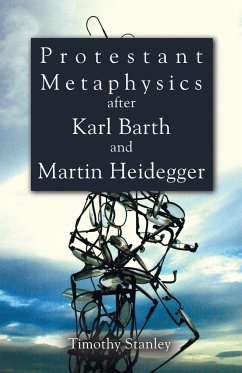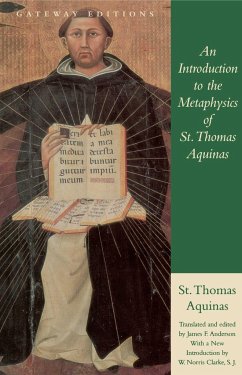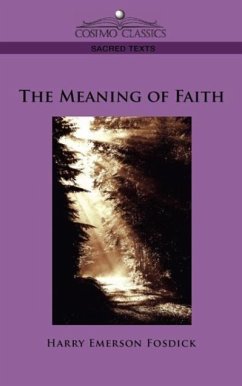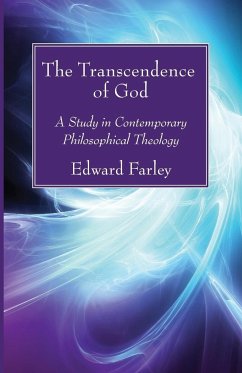
Protestant Metaphysics after Karl Barth and Martin Heidegger
Versandkostenfrei!
Nicht lieferbar
This is an impressive work. Stanley not only forges new ways of thinking about Protestant ontology in relation to Postmodernism, but advances the discussion of Heidegger's relation to Luther and Barth's use of Anselm to develop a truly theological ontology. Highly recommended, especially, for courses in 20th century theology. William Dyrness, Professor of Theology and Culture, Fuller Theological Seminary, Pasadena, California Tim Stanley's book is a bold step towards thinking Barth differently. Controversial to those who consider Barth's theology as a dismissal of metaphysics, this book ...
This is an impressive work. Stanley not only forges new ways of thinking about Protestant ontology in relation to Postmodernism, but advances the discussion of Heidegger's relation to Luther and Barth's use of Anselm to develop a truly theological ontology. Highly recommended, especially, for courses in 20th century theology. William Dyrness, Professor of Theology and Culture, Fuller Theological Seminary, Pasadena, California Tim Stanley's book is a bold step towards thinking Barth differently. Controversial to those who consider Barth's theology as a dismissal of metaphysics, this book has affinities with the project the Finnish School are engaged in with respect to Martin Luther. It heralds a reappraisal of the relationship between Protestantism and metaphysics crucial to ecumenical dialogue today, and it lays the foundation for a new conception of Protestant ecclesiology. Tim Stanley is another young theologian to watch. Graham Ward, Head of the School of Arts, Histories and Cultures University of Manchester, UK Elegantly written and argued, this book by Timothy Stanley offers us a bold and exciting re-reading of the heritage of Karl Barth, who is here proposed a profound countervalence to the 'postmodern' realisation of Protestant metaphysics in Martin Heidegger. In so doing Stanley unsettles more than a few of our settled lucidities concerning not least the status of 'ontology' in Barth's thought. This book proves the vitality of Barth beyond the old pro et contra that would squeeze the great Swiss theologian into the confines of some predetermined 'Barthianism'. -- Aaron Riches, Centre of Theology and Philosophy, University of Nottingham, UK For better or worse twentieth century Continental philosophy and Protestant theology were dominated by Heidegger and Barth respectively, and each remains the focus of lively discussion: admirers and adversaries have always been wary of relating these two apparently incompatible narratives of human destiny to one another, until now: providing compact and very fair accounts of each, Timothy Stanley goes on to make comparisons between the two which cast unexpected new light on Heidegger's atheism and Barth's Christian faith. Fergus Kerr, Honorary Fellow in Divinity, University of Edinburgh Timothy Stanley is a Postdoctoral Fellow in Christianity and Contemporary Culture at the University of Manchester, UK.






